#rose beauharnais
Explore tagged Tumblr posts
Text

Young Josephine
#talk about feeling watched#young josephine#rose#rose beauharnais#xviii fashion#corset#tropical plants#royalcore#pinkaesthetics#upper figure inspired by Glenn Close in Dangerous Liaisons#with a twist#eyes following#butterfly
51 notes
·
View notes
Text
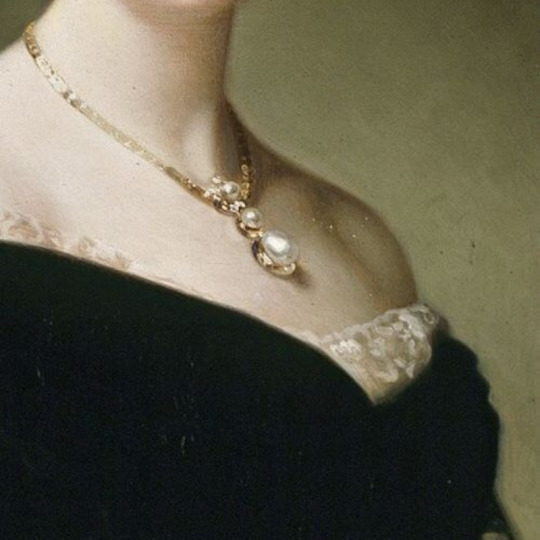
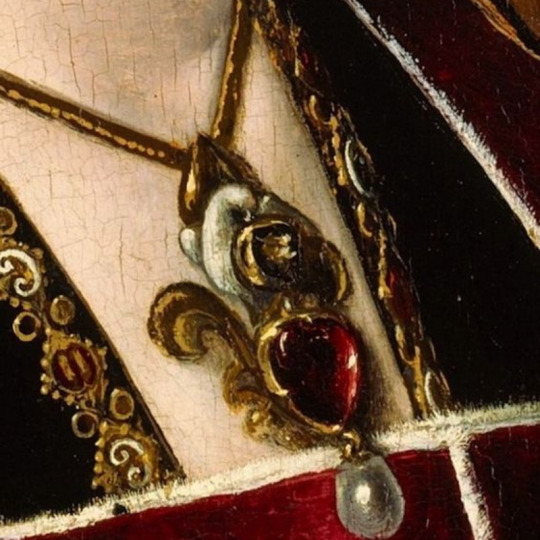
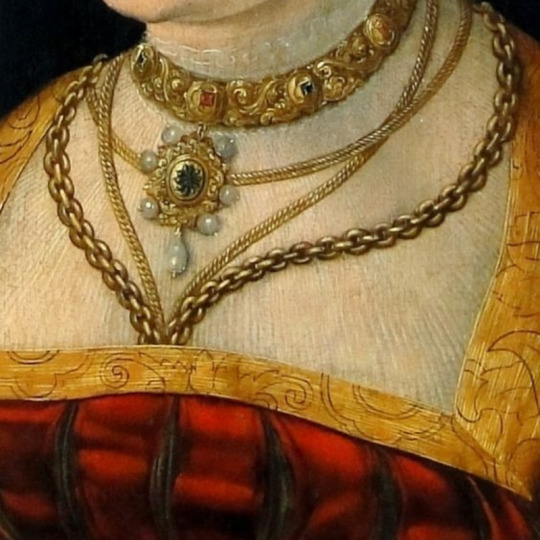
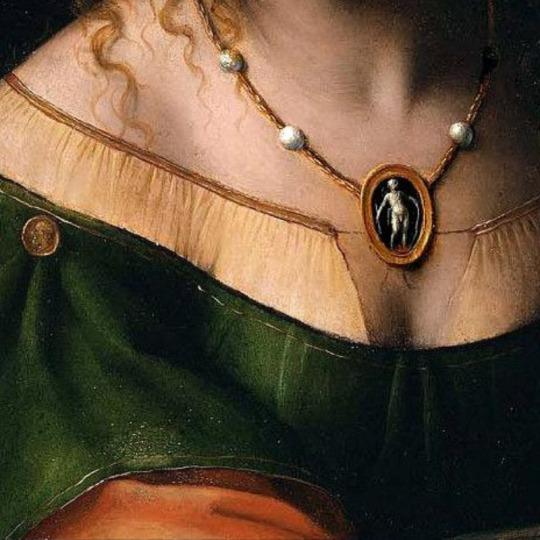
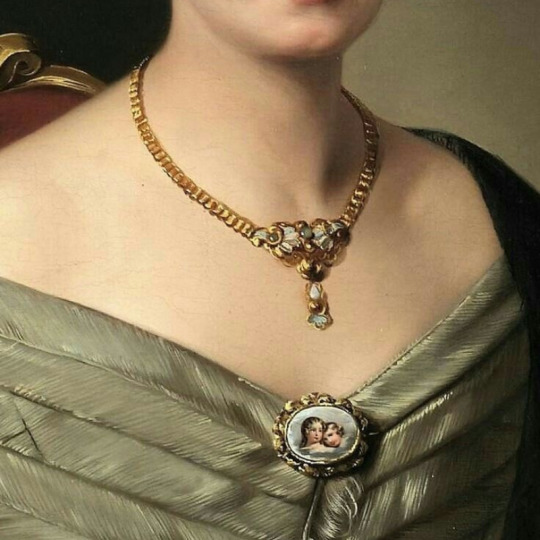
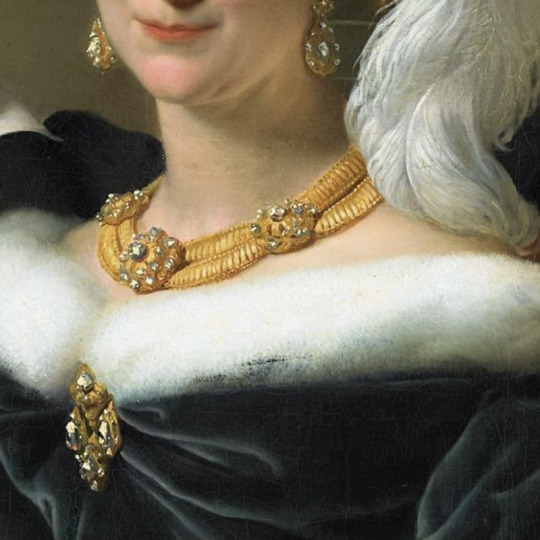
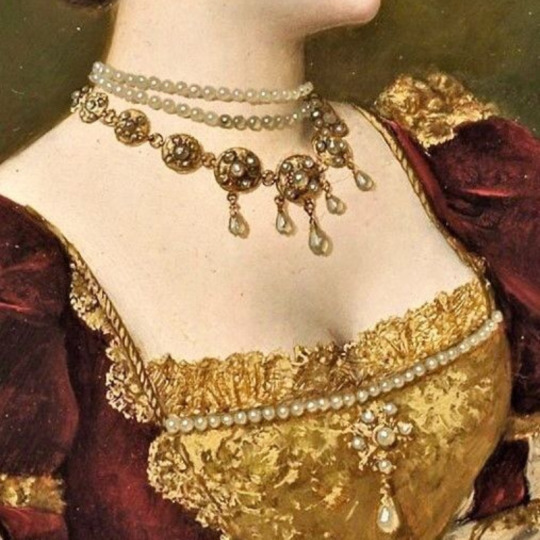
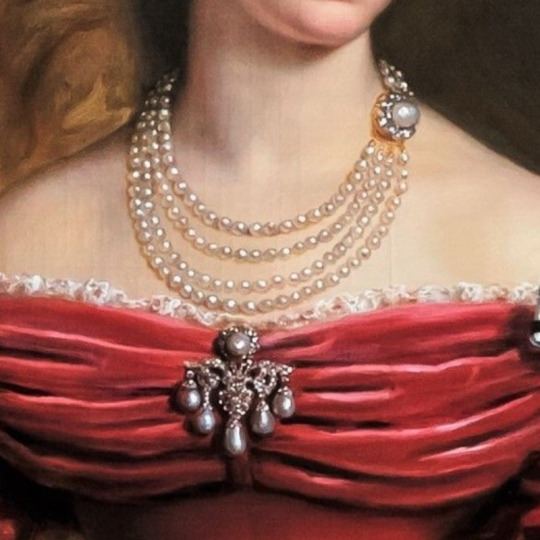
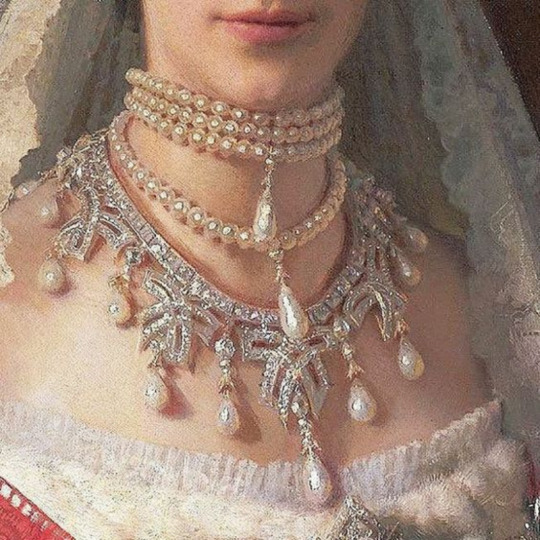
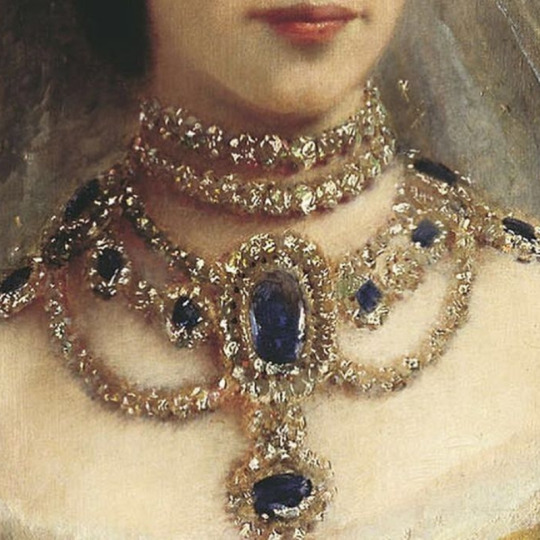
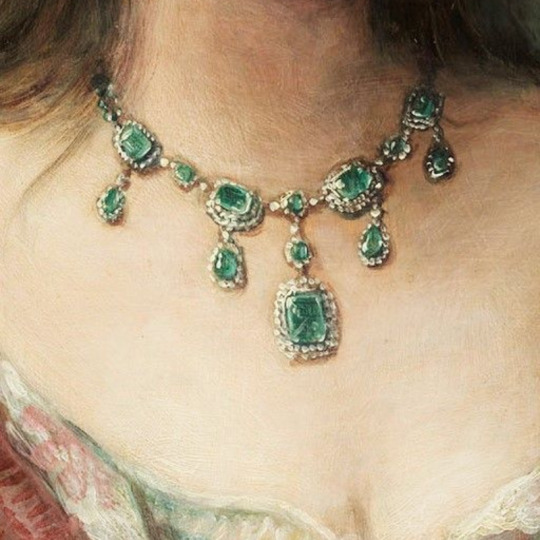
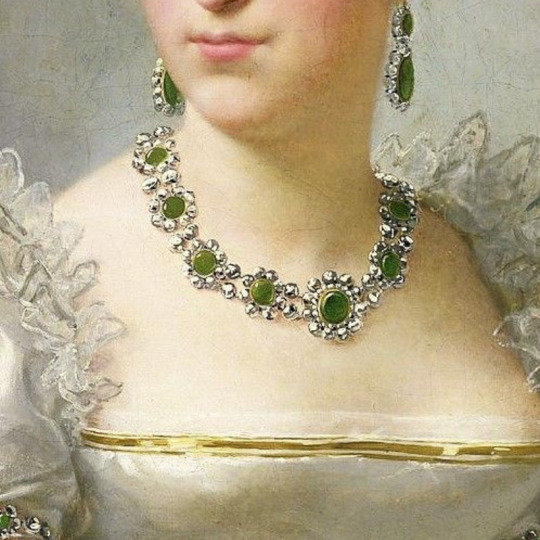
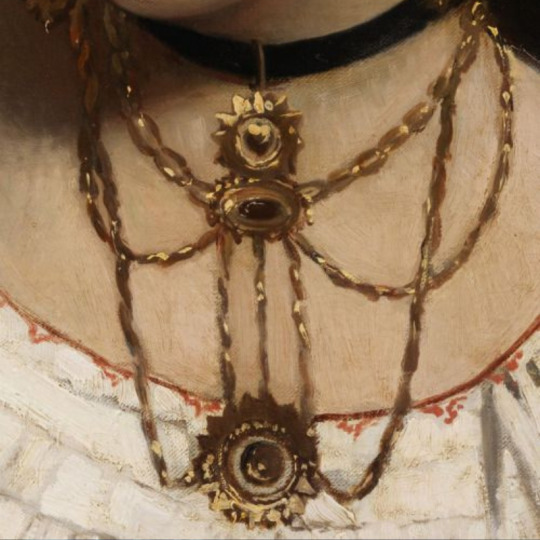
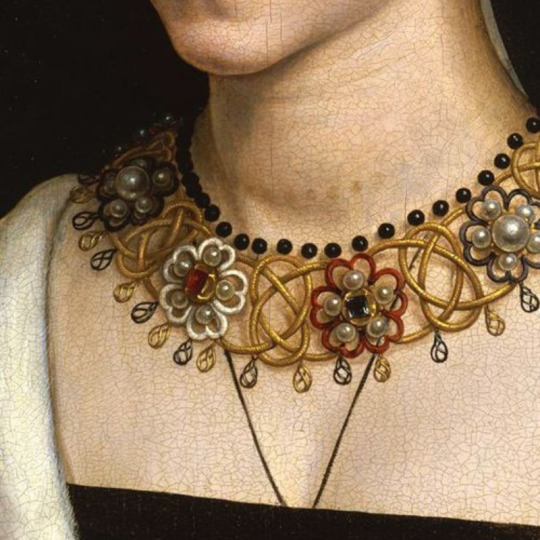
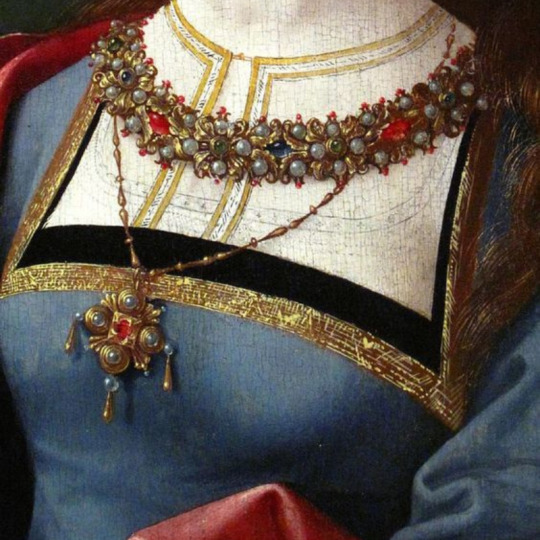
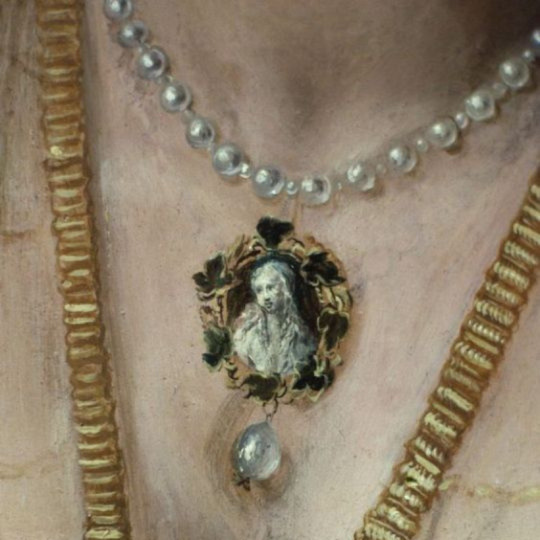
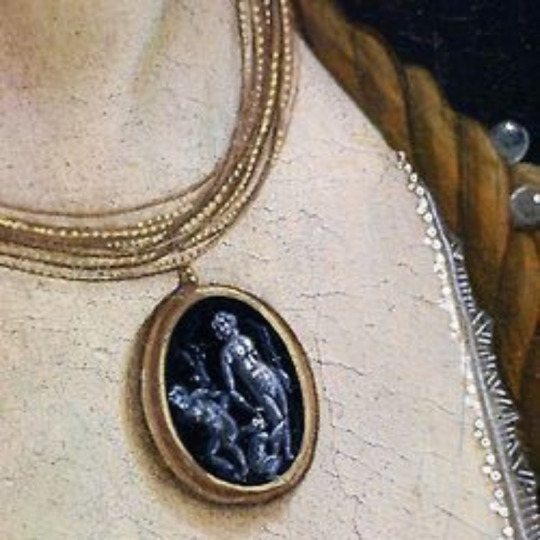
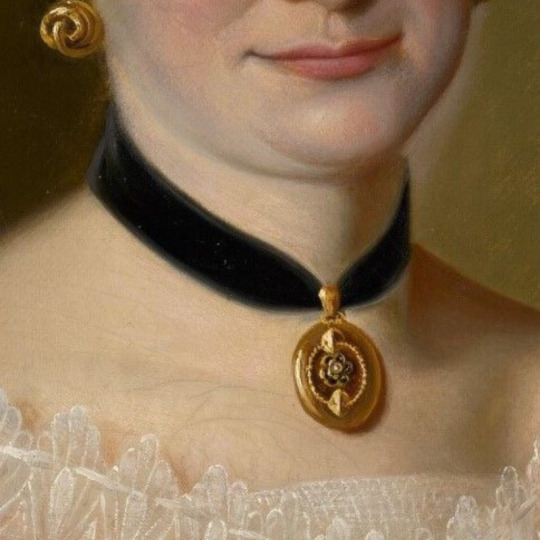
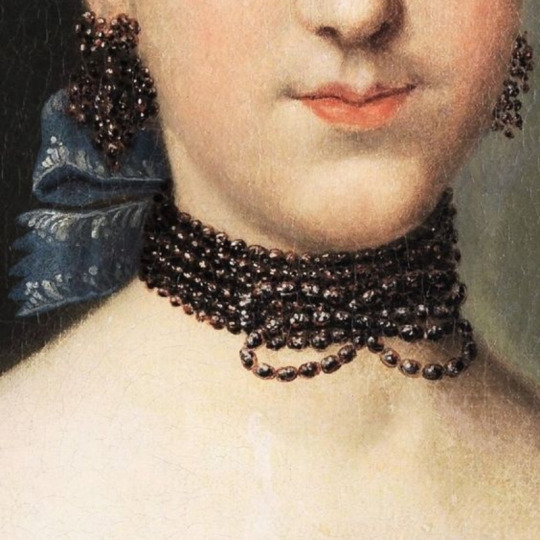
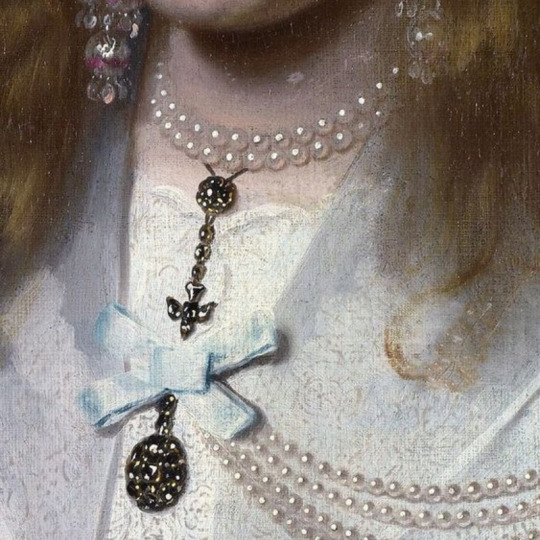

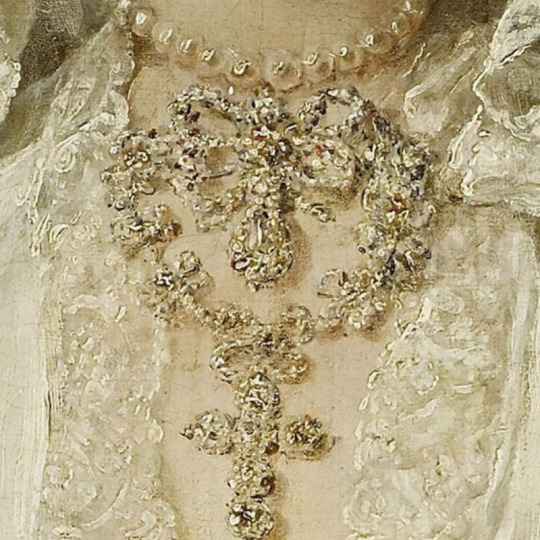
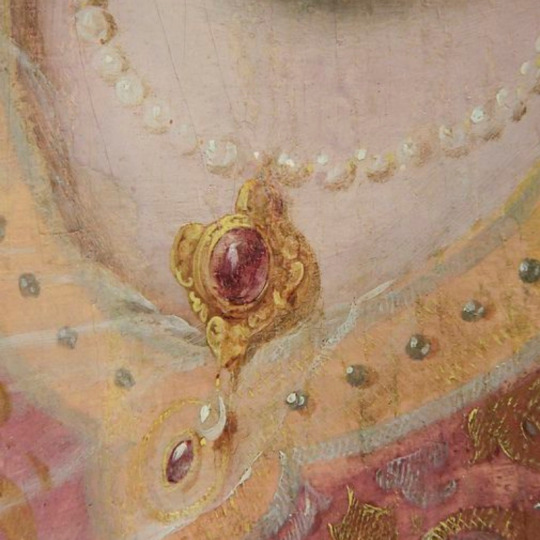

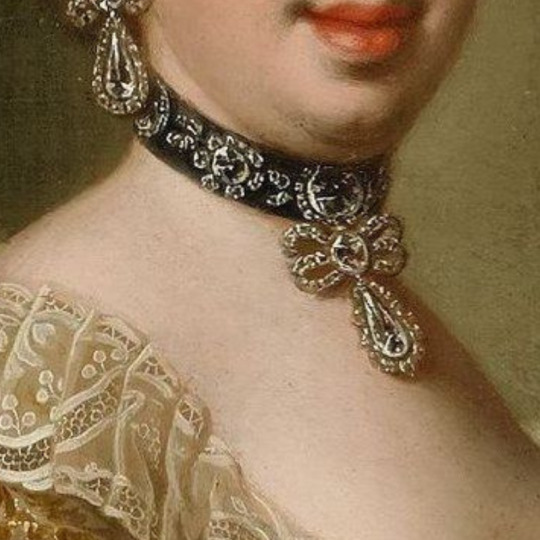
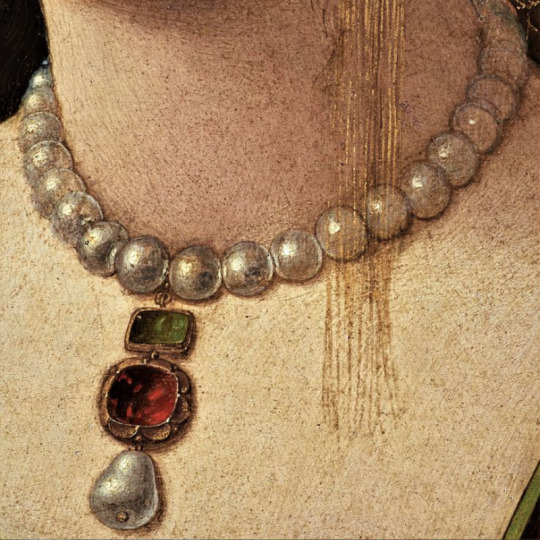
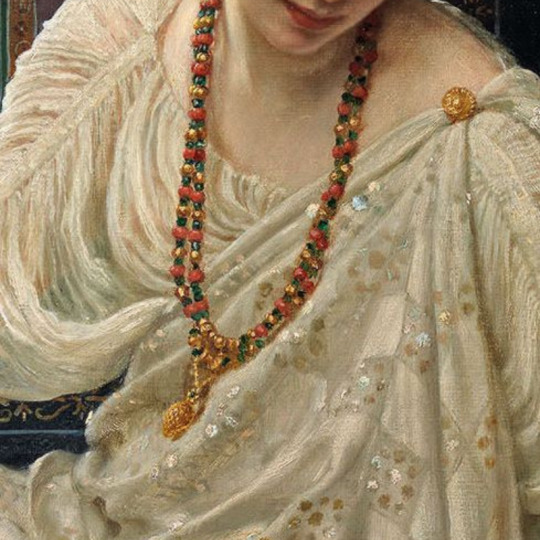
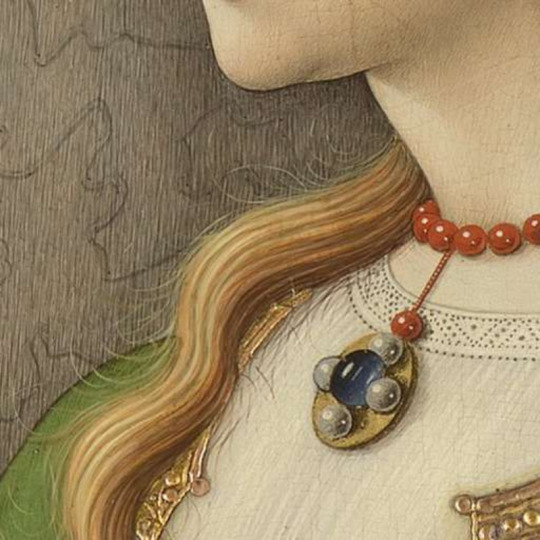

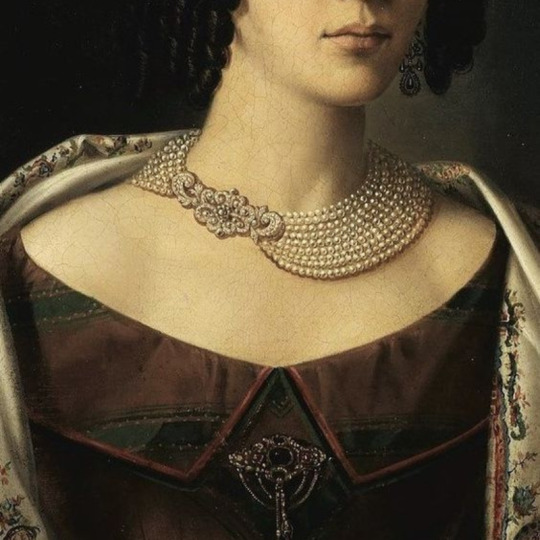
necklaces/chokers + art
#concepcion remisa de moret by federico madrazo#sorry some of these might not have titles because searching these through googles is virtually impossible#lucas cranach the elder by unknown#salome with the head of john the baptist by bernardindo lunini#portrait of a lady by aristeidis oikonomou#not sure unknown by unknown?#the painting is by mortiz stifter#princess louisa of prussia by jean baptise van der hulst#not sure#cant find the artist#i think this is by cornelis le mair#the girl in the painting is hortense de beauharnais but i dont know the artist#artist is markos kampanis#maria portinari by hans memling#i cant find the artist nor the painting but i do know thats a tutor gown#portrait of a lady by pedro campana#portrait of a young lady by sandro botticelli#cant find artist nor painting#young noblewoman with a rose by johann heinrich#artist is bartholmeus van der helst#painter is antonio moro#the subject is mary edward hogarth but i cant find the artist#painter is frans hals#painter is andrea solario#unknown by unknown (cant find it)#portrait of a lady in red by bernardino zaganelli#circe by edward john poynter#mary madalene by carlo crivelli#lady mary wortley montagu by joseph highmore#well i know the location is 19th century russia but cant find the artist
8K notes
·
View notes
Text


Blue enamel ring belonging to Josephine de Beauharnais, bearing the inscription "sincere love." Gifted to her by Napoleon in 1796, the year of their marriage.
#josephine de beauharnais#napoleon#history#historicwomendaily#finally going to malmaison next year!#have oddly never been despite all the time i've spent in paris#but now my dream is finally coming true - i'm on my way to my beloved josephine!#i'm stealing one of her swan teacups#and i'm going to her tomb so i must bring roses and roses and roses
155 notes
·
View notes
Text
Film stills, Napoleon 2023

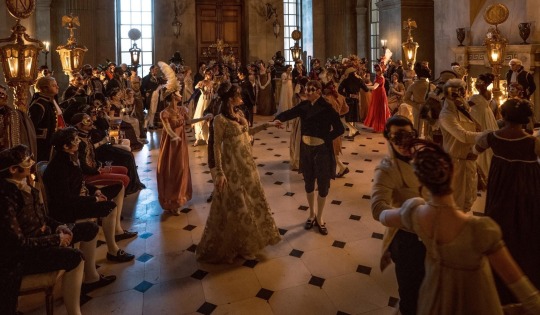
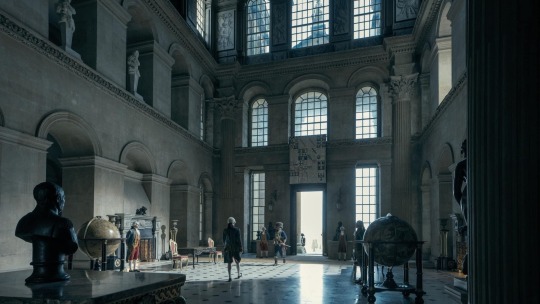
#napoleon bonaparte#napoleon#bonaparte#ridley scott#ridley scott Napoleon#joaquin phoenix#Joaquin Phoenix Napoleon#Napoleon movie#Napoleon the movie#film promo#film stills#Vanessa Kirby#Vanessa Kirby Napoleon#Vanessa Kirby josephine#napoleon and josephine#emperor napoleon#empress Josephine#rose de beauharnais#josephine de beauharnais#josephine bonaparte
115 notes
·
View notes
Note
Was Josephine de Beauharnais so popular with the masses even after the fall of the First Empire?
I would not know because I know very little about "the masses" during the empire. So I could not even tell how popular she was while she still "reigned" (as far as Napoleon would any of his wives "reign").
Gut feeling says that much of her popularity among regular folks even only developped after the empire. The opinion of the "masses" did not count for much under Napoleon, after all. Josephine's death right after Napoleon's abdication was a perfect start to develop legends about her. Though even more likely, many of those legends - like Napoleon's alleged last words being about Josephine - only sprung up during or in connection with the Second Empire. Napoleon III was Josephine's grand child, after all, and had a bit of a cult for his Beauharnais relations.
Josephine had always been popular among the lower nobility/wealthy bourgeoisie though, I believe. That was the class she came from and belonged to.
Thanks for the question, sorry if I cannot answer any better.
12 notes
·
View notes
Text
Their first meeting❤️🥹... this manga is too underrated. It's "Bara no Josephine"/ "Josephine the French Rose" by Yumiko Igarashi. Youn can read it on Manga Fire.
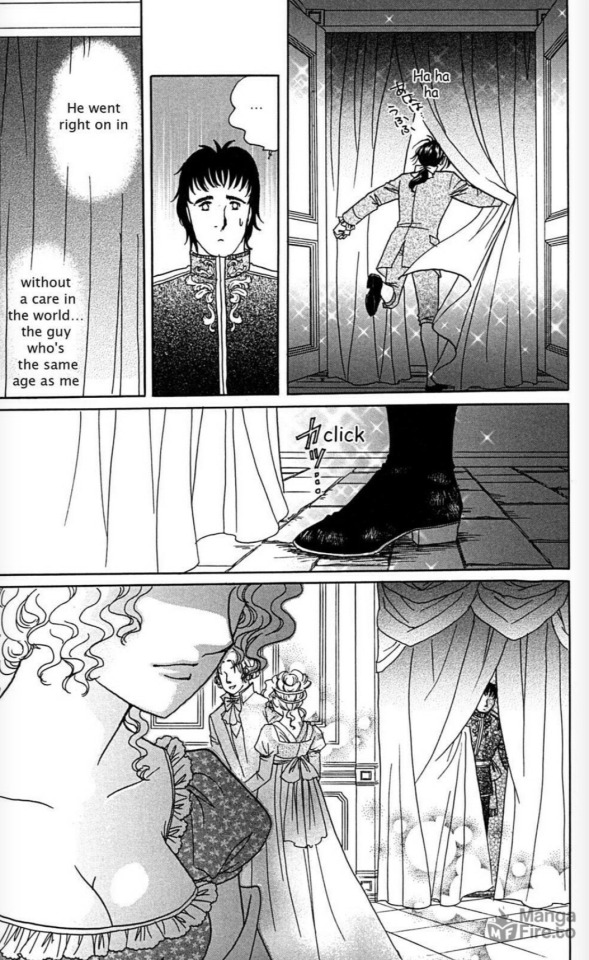
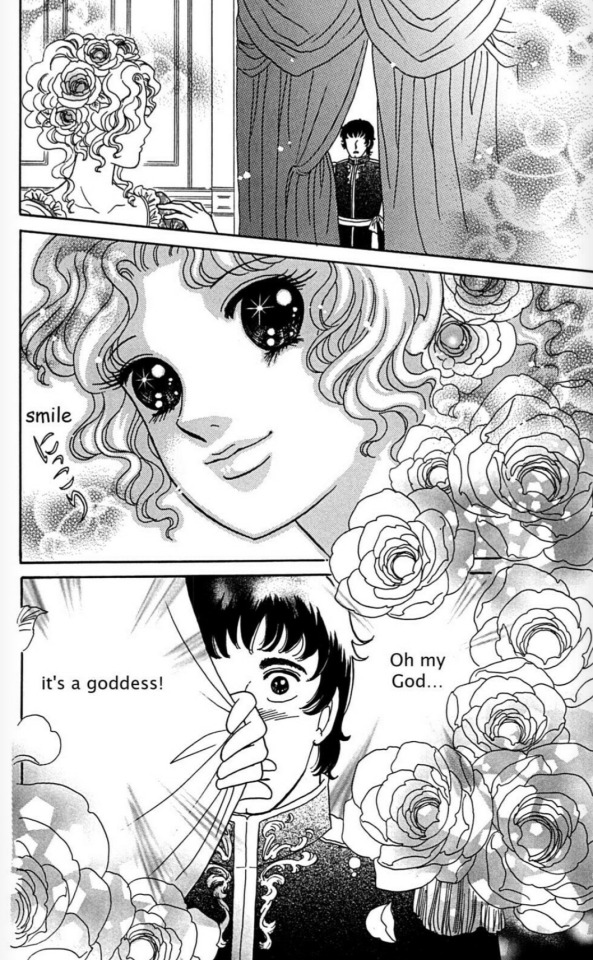
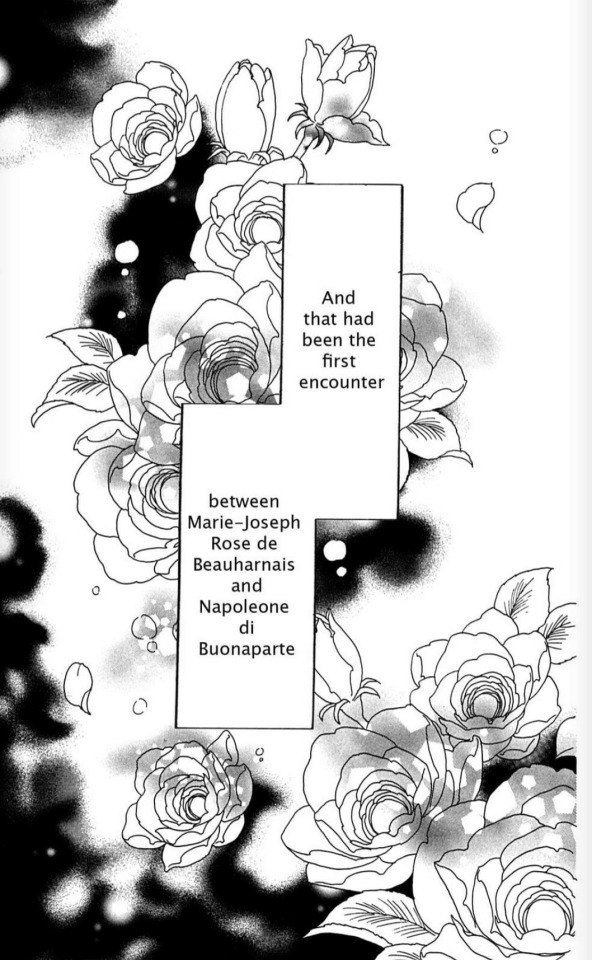
#shojo manga#manga#shojo#shoujo manga#shoujo#igarashi yumiko#yumiko igarashi manga#yumiko igarashi#bara no josephine#josephine the french rose#napoleon#napoleon bonaparte#josephine de beauharnais#french revolution#empire#emperor#empress
31 notes
·
View notes
Text
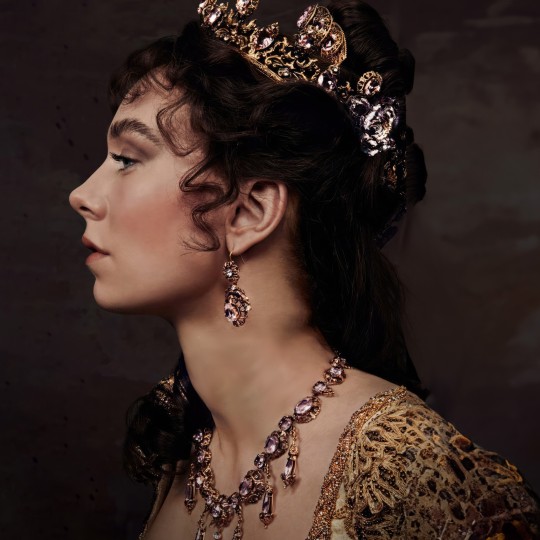
Napoleon (2023)
#2023#film#movie#Napoleon#Ridley Scott#Vanessa Kirby#Josephine Bonaparte#Josephine de Beauharnais#Marie Josephe Rose Tascher de La Pagerie#Joaquin Phoenix#Napoleon Bonaparte#Napoleone di Buonaparte#Jannis Niewohner#Hippolyte Charles#Edouard Philipponnat#Tsar Alexander#Rupert Everett#Duke Of Wellington
18 notes
·
View notes
Text
Tumblr Biography: Napoleon 🇫🇷
💔 After separating from his first 👰 wife, Napoleon 💍 married Marie Louise, daughter of the 👑 Emperor of Austria. Would this new 🤝 alliance be enough to 🔒 secure his legacy?
#empress#martinique#josephine de beauharnais#napoleon#roses#rose#red roses#coronation day#horticulture#fashion#patron#divorce#tuileries#charmed#widowmaker#barras#grace#separation#alimony#custody#mediation#annulment#assets#decrees#infedility#litigation#settlement#petition#austria#habsburg
0 notes
Text
Malmaison
Amy Lowell
Verse 1
How the slates of the roof sparkle in the sun, over there, over there, beyond the high wall! How quietly the Seine runs in loops and windings, over there, over there, sliding through the green countryside! Like ships of the line, stately with canvas, the tall clouds pass along the sky, over the glittering roof, over the trees, over the looped and curving river. A breeze quivers through the linden-trees. Roses bloom at Malmaison. Roses! Roses! But the road is dusty. Already the Citoyenne Beauharnais wearies of her walk. Her skin is chalked and powdered with dust, she smells dust, and behind the wall are roses! Roses with smooth open petals, poised above rippling leaves... Roses ... They have told her so. The Citoyenne Beauharnais shrugs her shoulders and makes a little face. She must mend her pace if she would be back in time for dinner. Roses indeed! The guillotine more likely.
The tiered clouds float over Malmaison, and the slate roof sparkles in the sun.
1 note
·
View note
Text
💔
On May 29, 1814, 210 years ago, Josephine Bonaparte passed away. And on this day I wanted to portray her with those who made her truly happy, those who were with her, literally, until her last breath - her children.
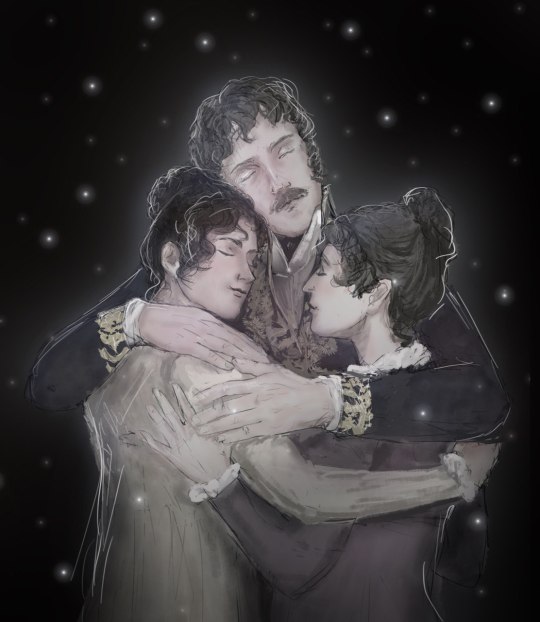
#napoleon's family#josephine bonaparte#empress josephine#rose de beauharnais#hortense de beauharnais#eugene de beauharnais
214 notes
·
View notes
Text
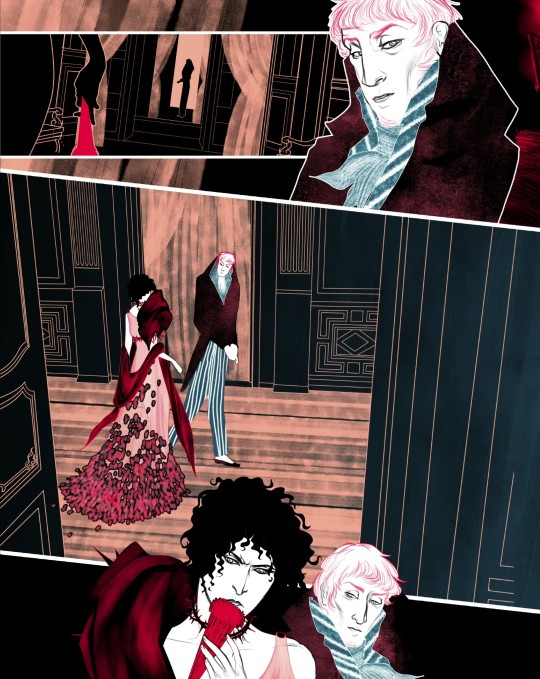
Josephine and Fouché talking.
It's supposedly set between 1794-5. I know I took a lot of liberties in terms of costuming, because I wanted to communicate things through the dresses and having fun)
136 notes
·
View notes
Text

L'Art et la mode, no. 52, vol. 7, 27 novembre 1886, Paris. Toilette vue chez Worth, pour la belle comtesse de Beauharnais. Bibliothèque nationale de France
Toilette vue chez Worth, pour la belle comtesse de Beauharnais; jupe de tulle blanc ayant devant un haut volant avec 5 plis de crêpe; tunique de drap de chine blanc relevée par des branches de roses jetées à travers la jupe ou semées de côté, séparant la traîne qui est en tulle; grande guirlande de roses au corsage; draperie de crêpe de chine posée à la diane.
Ensemble seen at Worth, for the beautiful Countess of Beauharnais; white tulle skirt with a high flounce in front with 5 crepe folds; white chine cloth tunic enhanced by branches of roses thrown across the skirt or sown on the side, separating the train which is in tulle; large garland of roses on the bodice; crepe de chine drapery placed in the diane style.
#L'Art et la mode#19th century#1880s#1886#on this day#November 27#periodical#fashion#fashion plate#description#bibliothèque nationale de france#dress#evening#gown#bustle#flowers#Modèles de chez#Worth
40 notes
·
View notes
Text
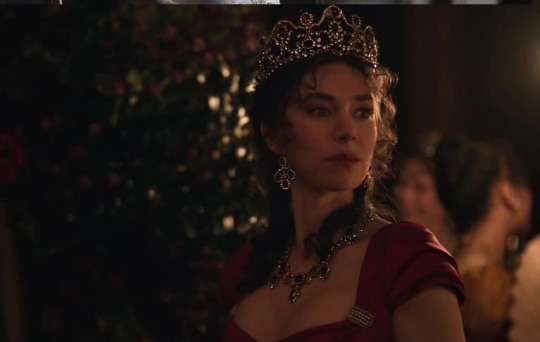
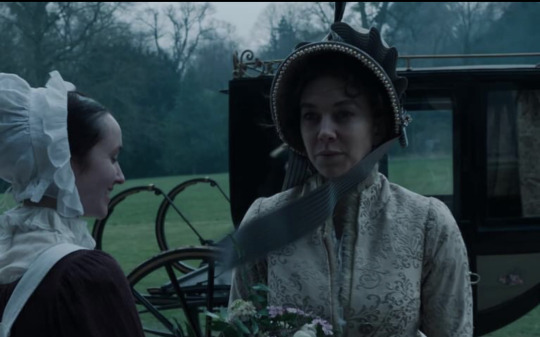
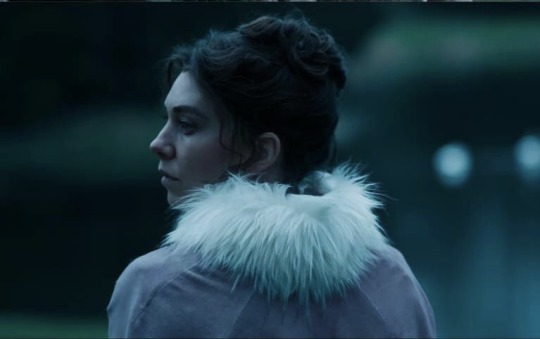
This Josephine looks to be a moody one.
#napoleon#Napoleon Bonaparte#Napoleon I#emperor napoleon#Napoleon the movie#Napoleon movie#movie promo#film stills#ridley scott Napoleon#ridley scott#josephine#rose de Beauharnais#josephine de beauharnais#josephine bonaparte#empress Josephine#movie josephine#Vanessa Kirby#Vanessa Kirby napoleon#Vanessa Kirby josephine
110 notes
·
View notes
Text
Technically, in 1790, this is not a portrait of “Josephine” but of Rose de Beauharnais, née Tascher de la Pagérie. It’s another long five years until she will receive that other name and that other existence.
I love the red-white-blue colour scheme of her dress. Revolution in full swing, obviously. If this really is from 1790, it must have been done by the end of the year, as I understand Rose and little Hortense only then got back to France, after having fled from the revolutionary upheavels on Martinique. With her husband Alexandre playing a somewhat important role among the revolutionaries, Rose probably found herself rather popular in Paris on her return.
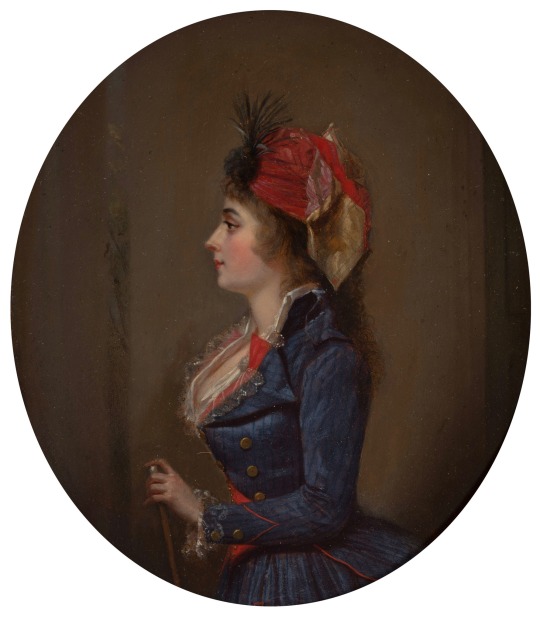
Oil Painting, 1790, French.
By Michel Garnier.
Portraying Josephine de Beauharnais (later Empress Josephine), in a blue redingote and red headscarf.
Murphy Raclin Museum of Art.
149 notes
·
View notes
Note
Hii, I have heard Eugene initially disliked his stepfather. It sounds interesting since I love the beautiful father-son bond of napoleon and his stepson. Is it true that Eugene initially didn't like his stepfather? Was it just a part of grieving for his own father, Alexander, or was it because Napoleon initially acted a certain way that hurt Eugene.
Hi and thank you for the Ask! As I’m feeling particularly lazy today, I thought it would be easiest to let Eugène answer himself. This is translated from his memoirs:
I must say that, a few months later, we realised that General Bonaparte might want to unite his destiny with that of our mother, and all the splendour that has since surrounded Napoleon, then General Bonaparte, has not made me forget the pain I felt when I saw my mother resolved to form new ties. It seemed to me that a second marriage, whatever it was, was a profanation, an attack on the memory of my father. General Bonaparte, who was already a regular visitor to the house, took an interest in everything that went on there, and did not disdain to devote himself, with particular care, to the education of two children whose mother he soon hoped to marry; but they were aware of the reluctance we had already shown, my sister and I, for my mother to marry again, and they used the need for both of us to complete our education as an excuse to place us in two boarding schools in Saint-Germain. It was not long before we learnt at once of my mother's marriage to General Bonaparte, of his appointment as commander of the army of Italy, and finally of my mother's imminent departure to follow her husband. All this news would have pleased me very little if General Bonaparte, on leaving for Italy, had not given me a glimpse of a very flattering consolation: he promised to call me to his side as soon as, through assiduous and successful work, I had made up for the time that circumstances had caused me to lose.
So, apparently Eugène and Hortense had shown their dislike for this second marriage openly enough for Napoleon and Josephine not wanting to have them around for the wedding. Which is … yeah. Not particularly considerate. Presumably, this had hurt Eugène more than he lets show in his memoirs. I surely would not want to learn about my mother having married from my school principal (according to Hortense, she was called to Madame Campan’s office, and Madame Campan then carefully broke the news). I’d argue this was not the best start.
But let’s not forget that this is Eugène’s own POV. As he admits himself in the next paragraph, his education had indeed been much neglected (he had already been pushed from pillar to post even before the Revolution after his parents’ separation). The kids being sent back to school may have been more than just an excuse to have them out of the way for Napoleon and Josephine’s marriage.
As to the reasons why the kids were set against their mother remarrying, Eugène cites the memory of his father, in whose care he had grown up and whom he probably had a much closer personal relationship with than his sister. He also may have understood much more than Hortense about the ugly scenes that had happened when his parents had separated, so his mother remarrying may have felt to him as if Rose-Josephine now completely gave up on Alexandre, as if she ultimately declared that her first marriage had been a mistake.
But most of all, I think the children felt abandonned. After all, not even two years earlier, they had woken up one morning to learn that their mother had been taken to prison during the night. Françoise de Bernardy thinks that the letters the kids wrote home from their boarding schools often feel as if they were very protective of their mother, almost as if they had been the adults and Josephine the child. All their childhood had been turmoil. Their mother was the only thing left they could cling to.
But both children were, as a rule, docile and well-behaved, and especially Eugène had this innate desire to please, to be loved, and to win the appreciation of whatever father figure was available in his life at any given time. So it would not take long for Napoleon to win them over. We do not have any letters from Eugène to Napoleon from this time, afaik, we only know he wrote because Napoleon mentions it. We do have a letter from Napoleon to Hortense, in reply to a somewhat defiant letter she had sent. Presumably, Hortense, being younger and closer to her mother, had been more hostile than her brother. But I doubt she would have expressed her feelings too openly; Madame Campan would have taken care of that.
I also always feel like I have to add a bit of a caveat with regards to Eugène’s and Napoleon’s relationship. Yes, I would argue this was most likely the closest thing to a father-son-relationship Napoleon ever experienced during his life. But it always remained at a certain distance. Napoleon called Eugène tu in private, obviously, but in letters and later at court it’s always vous. And while we have multiple remarks of "paternal love" and "filial devotion" etc in their correspondence, I yet have to find a single instance of Eugène referring to Napoleon as a father. Even in letters to his mother and sister he speaks of either "Bonaparte" or later "the emperor". Napoleon does of course call Eugène his son in every letter since the adoption. But this is first and foremost a formality; prince Karl von Baden who had married Napoleon’s adopted daughter Stéphanie de Beauharnais is adressed as "mon fils" just like Eugène.
Aaaand considering that I only wanted to quote Eugène, this has gotten unbearably long once again. Sorry for that 😚. I always get so excited whenever somebody shows an interest in the boy.
Thanks for the Ask, I hope this was helpful!
39 notes
·
View notes
Text
I love them so much in this manga❤️... they're so sweet and they look so cute and good together there🥹🫶🏻 I would really love to see an anime based on this manga❤️
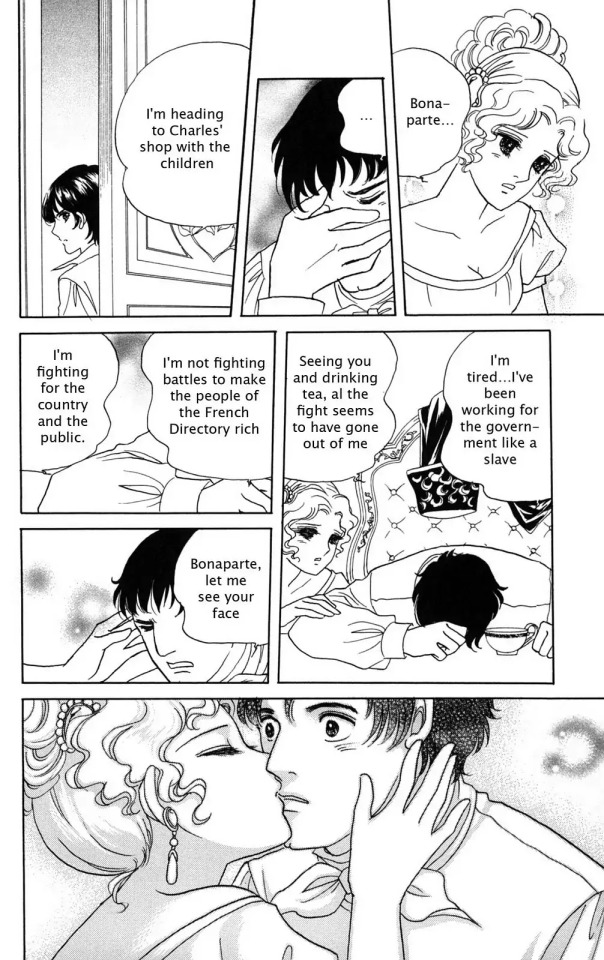

Manga: Josephine the French Rose/ Bara no Josephine- Yumiko Igarashi
Characters: Napoleon Bonaparte and Josephine de Beauharnais
#shojo manga#manga#shojo#shoujo manga#shoujo#yumiko igarashi#yumiko igarashi manga#rose#napoleon#napoleon bonaparte#josephine#bara no josephine#josephine the french rose#josephine de beauharnais#history#historical manga
20 notes
·
View notes